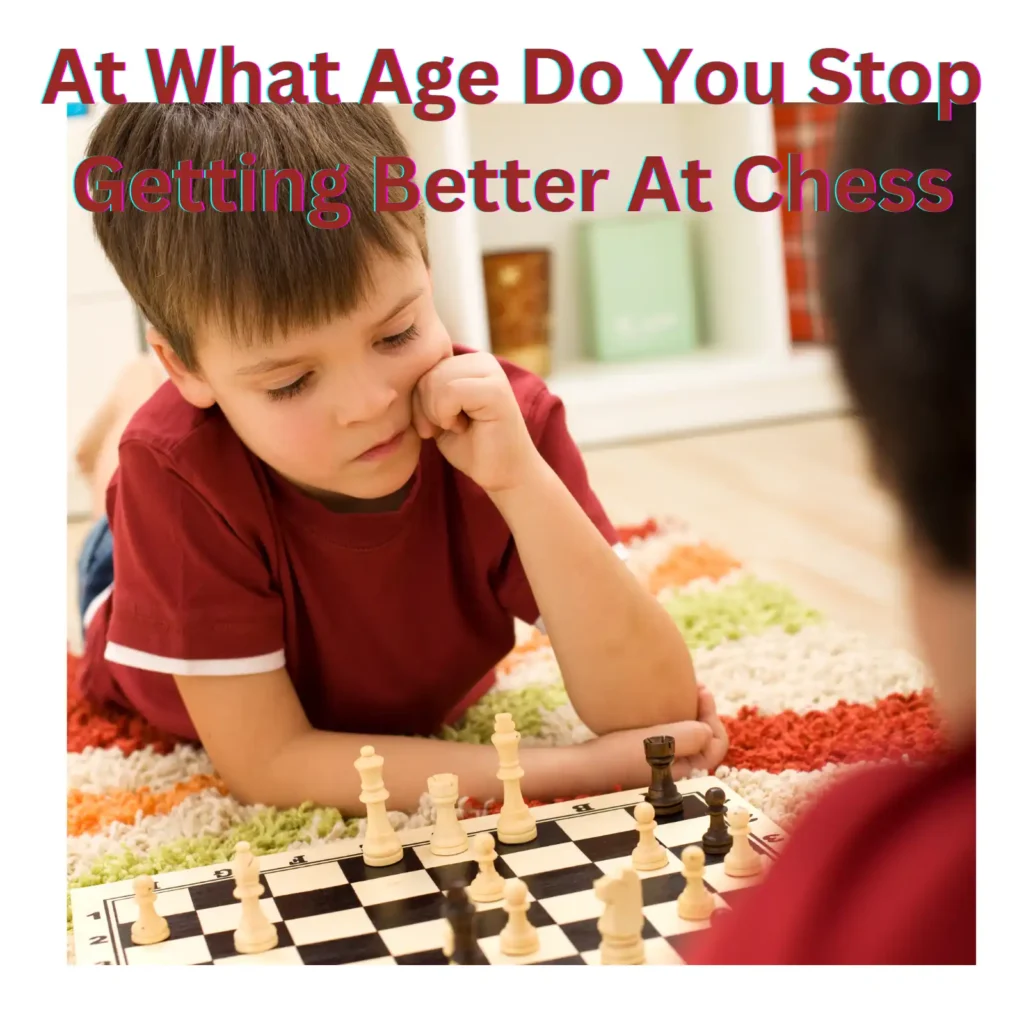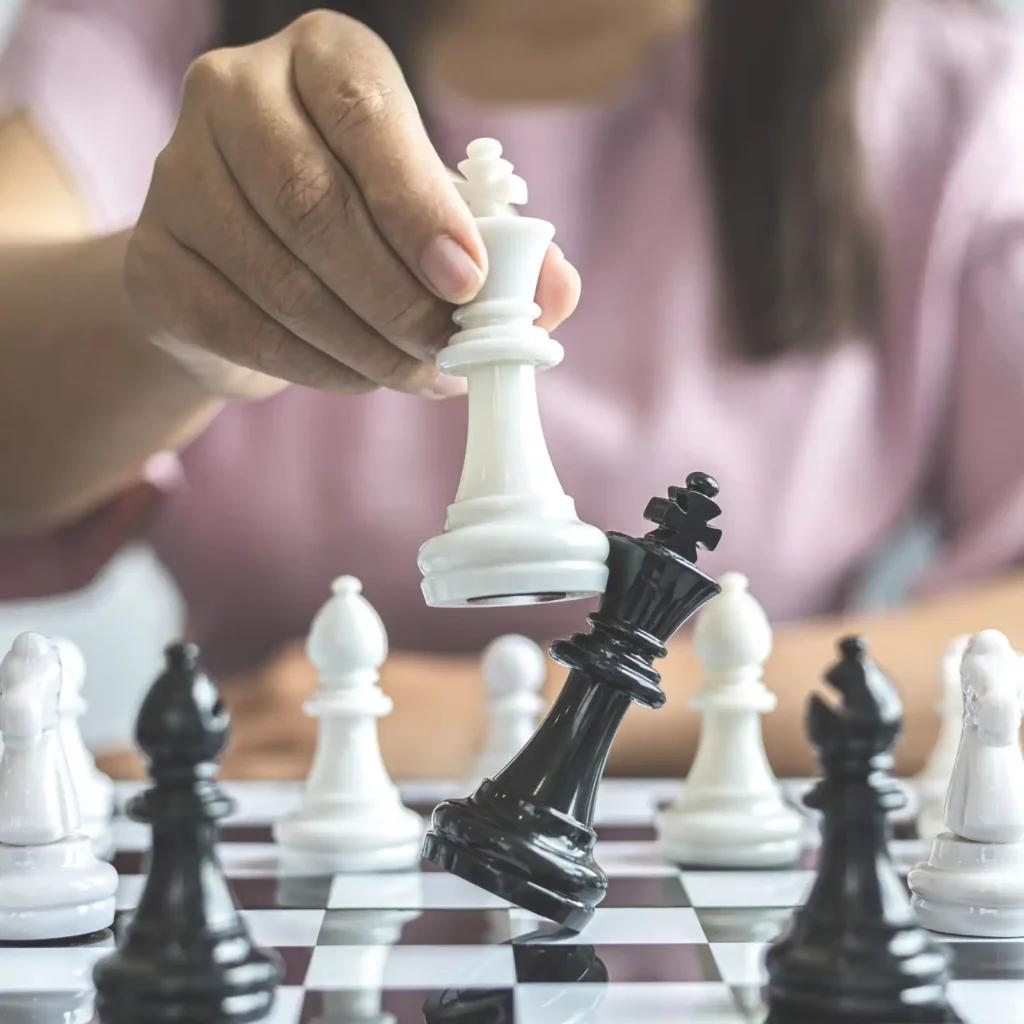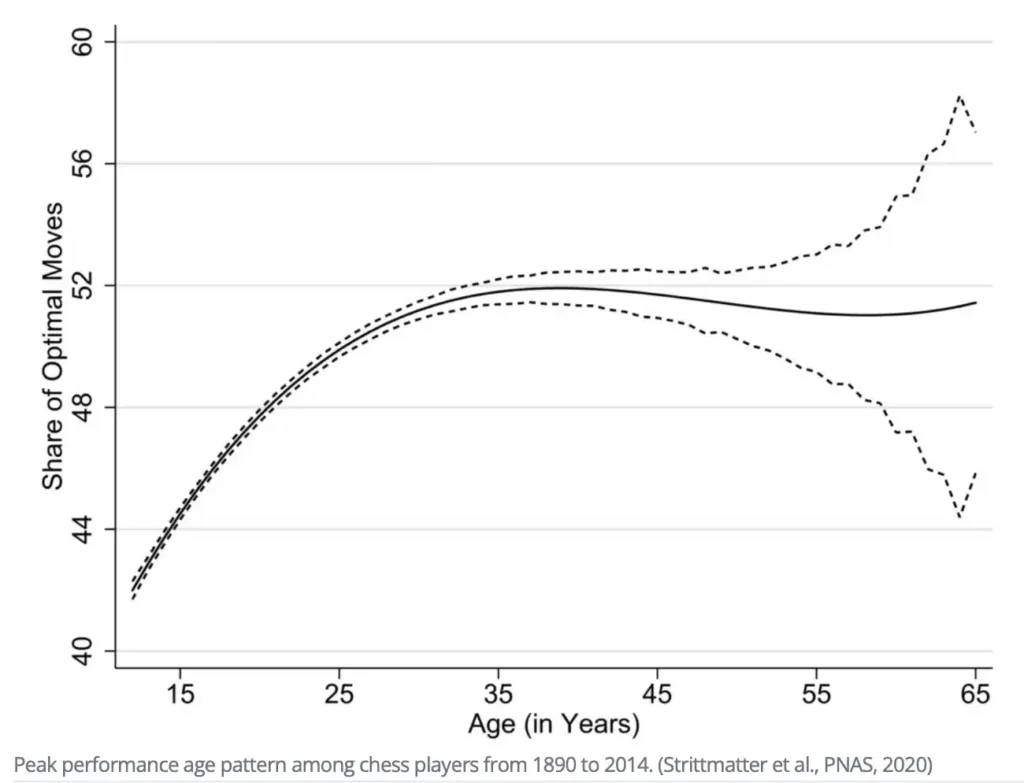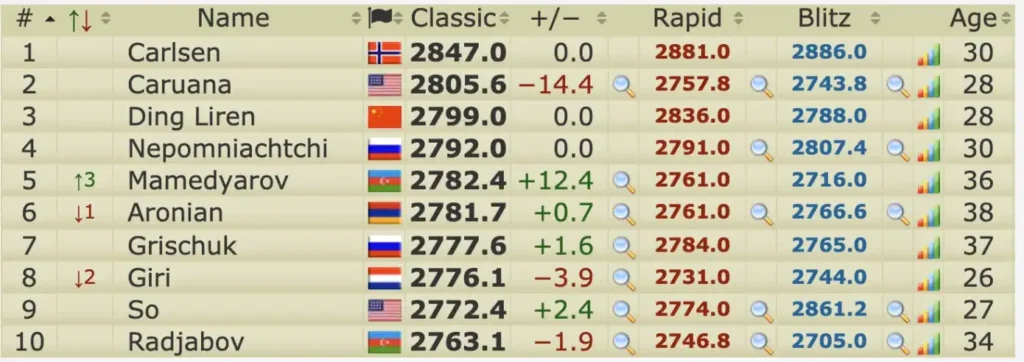
It’s very common for people to ask if there’s an age cap where you stop improving at chess. In my experience having played for many years I have to say that the answer varies. To generalize I think as we cognitively decline obviously our chess learning abilities will also decline. Chess is no different than anything else when it comes to mental abilities.
At this point I want to say though there’s some things to consider. I know some elder guys that started playing chess for the first time at around 50-60. Obviously since they started late they will be learning early. The point I’m trying to make here one of the most influential factors that comes into play here is at what level you are talking about which I’m going to try to break down in a bit more detail below.
New Players
As said above new players will always be learning more in chess. Since this is a new game for them even knowing the basic moves is something new. Besides stating the obvious they will probably learn from experience some opening moves etc.
Once they get past this very initial learning curve of learning the game however things tend to change. The main reason for this from what I’ve seen is that the depth of thoughts changes during the game. You can’t compare a high elo chess player with someone that just started so in the next section I want to talk a bit about those intermediates.
Intermediate Players

In this category I am including all the people that know the basic moves and play chess casually. This includes good players but not professionals. They play chess as a hobby or at social gatherings and events. I also put myself in this category so I know it pretty well.
I can tell you for a fact that now that I’m in my mid 40’s I have not been affected in a positive or negative way from age. I am still continue to learn and pick up new chess tactics or even learn by watching competitions and professional players win games. I would guess that as I get older and I approach my late 60s and considering some of my uncles I do have noticed that they tend to slow down. This by no means means they are getting worst. In the contrary I have lost to them quite a few times.
The tendency is as I get older and I think this holds true for all casual players is to care less about learning new things and improving unless you are really into it. So I’ll go ahead and ballpark most people in this category which I think matches the definition of stopping to care to learn more. Again this by no means that age from a cognitive point of view affects the game play but it does affect the gameplay from chess no longer being a priority in their life.
Advanced and Professional Players
This last category is a very difficult one to answer accurately because there isn’t enough data. As you know deep blue lost to Kasparov but he was at the age of 22. That’s an age I consider peak all the way to 30 years old. Now if you ask me would Kasparov be able to repeat this at the age of 60 or even 70? To be completely frank I don’t think anyone can answer that as it depends on a lot of factors that I’m going to list below:
- Will to win
- Cognitive function at the time
- Mental health
- Period of his life and things he’s going through
As you can see above I listed quite a few reasons of why this is a difficult thing to answer so I’m going to pick a good and bad scenario to give you an answer.
The good scenario above is obviously that Kasparov is super sharp in his mind and mental cognitive abilities I believe yes he can still win deep blue and a lot of other professional players.

As you a see in the graph above there’s a clear indication between a slow decline as we get older but then it seems to pick up again. This tells me that for most players and considering the study taken above by PNAS age does not matter. Later in this article I’m going to tell you a single case where it does matter and this is high elo games.
If you were to ask me to opposite I think he would probably lose. Why? I think chess is a very intense game and being mentally clear and focused is a very important aspect of winning the game at peak levels. Particularly if you are facing an ageless machine that has a whole set of instructions programmed into it and doesn’t care how old you are. It will punish your every move which in chess it’s important to get right!
Professional Age Players Chess Performance
So for this there’s a great resource from chess24 that shows how professional players perform based on their age. Before I analyze this and give you my thoughts on it lets take a look at the below chart.

As you can see from the chart above the age group generally tends to be between 26-38. If we go by an average of the above we will notice that this is somewhere in the mid-30s. When it comes to professional play I think age does matter for the reasons we listed earlier. Since most players are playing to their best of their ability they need to perform well in the game and everything they do counts.
The majority of people however I do not think they belong to that level of play and are typically in a much lower elo. Considering this it’s safe to say that for most people the peak age of chess is basically a myth. In the next section I’ll go into a bit more detail explaining this.
The Myth Of The Peak Age
It is difficult to pinpoint a specific age at which chess players tend to peak. While it is true that some chess players may reach their peak in their late 20s or early 30s, there are many other factors that can influence a person’s chess abilities and the age at which they peak.
I know some chess players that have a natural aptitude for the game that allows them to improve quickly and consistently throughout their career. To put it simply for you it depends on the person some may have to work harder to improve, but with dedication and consistent practice, they may still be able to achieve success at a high level well into their later years. Another thing to take into account is that physical and mental health can also play a role in a person’s ability to perform at their best on the chessboard. Players who are able to maintain good health and well-being may be able to continue improving and achieving success at the game for a longer period of time.
It is also worth noting that the concept of a “peak age” may vary depending on the level of competition a player is facing. Lets consider the case of a player who competes primarily in local tournaments they may have a different peak age than a player who competes at the international level. Ultimately, the age at which a chess player peaks will depend on a variety of factors, and it is possible for a person to continue improving and achieving success at the game at any age.
While there may be some truth to the idea that chess players tend to peak in their late 20s or early 30s, it is ultimately a myth that there is a specific age at which players stop getting better. Factors such as natural aptitude, the amount of time spent studying and practicing, and physical and mental health can all influence a chess player’s ability to improve and achieve success at the game. With hard work and dedication, it is possible for a person to continue improving at chess at any age.